- Serbia
Get to know Serbia
- Citizens
Culture and science
Health services
Pension and disability insurance
- Business
Employment
Economy
- Media
- Government
- Contact
Keep in touch
Contact form
Back
Keepin touch
Whether you have a question, comment, suggestion or any problem in the purview of the government, send us your message and we will try to respond as soon as possible. If your problem is not in our purview, we will forward your message to the relevant institution.
Q:
A:
Imports of secondhand goods restricted
Belgrade,
13 April 2004
Due to high volume of imports of secondhand goods aimed for further sale, the Environmental Protection Directorate of the Serbian Ministry of Science and Environmental Protection said today that it will stop issuing licences for the import of used goods, and that changes in the regime of issuing permits for waste import will come into effect on April 19, read a statement by the Ministry.
These changes stipulate that it will not be necessary to acquire permits for used goods that are imported as secondhand clothes if they are classified, disinfected and of extra quality (secondhand clothes almost same as original) or of the first quality (the same quality as extra, but can be stained). However, the Ministry will not issue licences for import of used goods of lower quality.
Due to uncontrolled import of secondhand technical goods and clothes and lack of precise data on their type, quantity and purpose, the former Serbian Ministry of Natural Resources and Environmental Protection introduced the obligation of acquiring a licence for the import of these goods in May last year.
According to statistics made in April this year, 142 permits for the import of waste - secondhand technical goods and clothes were issued in the period May 2003-April 2004.
The permits were issued for the import of 253,564 computers, 253,604 monitors, 34,900 laptops, 104,500 refrigerators, 59,110 freezers, 75,050 washing machines and 3,283 tonnes of used clothes.
These data show that the volume of import of such goods is very high. However, these goods become waste after a short period of time, and some electric device components, such as cathode-ray tubes of TV sets and monitors contain dangerous materials and therefore require special recycling methods which in Serbia still do not exist.
The Environmental Protection Directorate said that the National Strategy on Waste Management with a EU accession programme highlights the need for restricting the import of used goods which have short shelf life and soon become waste, requiring special treatment and management.
For that reason, the Directorate will no longer issue permits for the import of goods which are classified as dangerous waste, because it is not possible to store it in line with environmental protection requirements.
Due to uncontrolled import of secondhand technical goods and clothes and lack of precise data on their type, quantity and purpose, the former Serbian Ministry of Natural Resources and Environmental Protection introduced the obligation of acquiring a licence for the import of these goods in May last year.
According to statistics made in April this year, 142 permits for the import of waste - secondhand technical goods and clothes were issued in the period May 2003-April 2004.
The permits were issued for the import of 253,564 computers, 253,604 monitors, 34,900 laptops, 104,500 refrigerators, 59,110 freezers, 75,050 washing machines and 3,283 tonnes of used clothes.
These data show that the volume of import of such goods is very high. However, these goods become waste after a short period of time, and some electric device components, such as cathode-ray tubes of TV sets and monitors contain dangerous materials and therefore require special recycling methods which in Serbia still do not exist.
The Environmental Protection Directorate said that the National Strategy on Waste Management with a EU accession programme highlights the need for restricting the import of used goods which have short shelf life and soon become waste, requiring special treatment and management.
For that reason, the Directorate will no longer issue permits for the import of goods which are classified as dangerous waste, because it is not possible to store it in line with environmental protection requirements.
-
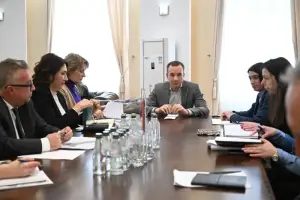 Belgrade, 2 March 2026
Belgrade, 2 March 2026Full support for Serbian citizens in war-affected Middle East region
-
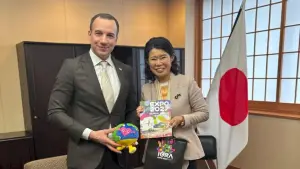 Belgrade/Tokyo, 27 February 2026
Belgrade/Tokyo, 27 February 2026Potential for further development of Serbia-Japan cooperation
-
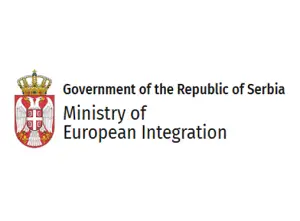 Belgrade, 26 February 2026
Belgrade, 26 February 2026Accelerating work on adoption, implementation of EU accession reforms
-
 Belgrade, 25 February 2026
Belgrade, 25 February 2026Consultations with EC on addressing domestic dairy market challenges
-
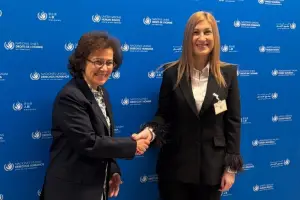 Belgrade/Geneva, 25 February 2026
Belgrade/Geneva, 25 February 2026Serbia firmly committed to continuous strengthening, promotion of human rights
-
 Belgrade, 24 February 2026
Belgrade, 24 February 2026Strengthening cooperation with Italy in fight against organised crime
-
 Belgrade/Washington, 24 February 2026
Belgrade/Washington, 24 February 2026Deepening strategic cooperation between Serbia, US in field of energy
-
 Belgrade, 23 February 2026
Belgrade, 23 February 2026Consultations with EC on milk, dairy products on 25 February
-
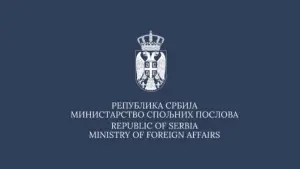 Belgrade, 21 February 2026
Belgrade, 21 February 2026Serbian citizens advised to leave Iran as soon as possible
-
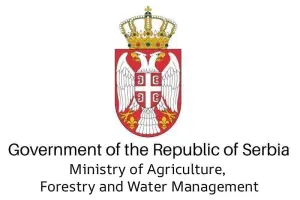 Belgrade, 19 February 2026
Belgrade, 19 February 2026Consultations with EC on current dairy market trends to be held on 25 February
